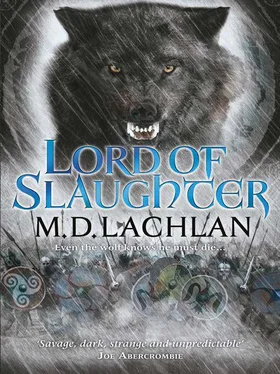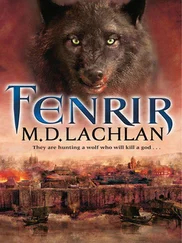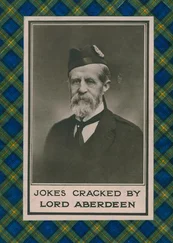M. Lachlan - Lord of Slaughter
Здесь есть возможность читать онлайн «M. Lachlan - Lord of Slaughter» весь текст электронной книги совершенно бесплатно (целиком полную версию без сокращений). В некоторых случаях можно слушать аудио, скачать через торрент в формате fb2 и присутствует краткое содержание. Жанр: Фэнтези, на английском языке. Описание произведения, (предисловие) а так же отзывы посетителей доступны на портале библиотеки ЛибКат.
- Название:Lord of Slaughter
- Автор:
- Жанр:
- Год:неизвестен
- ISBN:нет данных
- Рейтинг книги:4 / 5. Голосов: 1
-
Избранное:Добавить в избранное
- Отзывы:
-
Ваша оценка:
- 80
- 1
- 2
- 3
- 4
- 5
Lord of Slaughter: краткое содержание, описание и аннотация
Предлагаем к чтению аннотацию, описание, краткое содержание или предисловие (зависит от того, что написал сам автор книги «Lord of Slaughter»). Если вы не нашли необходимую информацию о книге — напишите в комментариях, мы постараемся отыскать её.
Lord of Slaughter — читать онлайн бесплатно полную книгу (весь текст) целиком
Ниже представлен текст книги, разбитый по страницам. Система сохранения места последней прочитанной страницы, позволяет с удобством читать онлайн бесплатно книгу «Lord of Slaughter», без необходимости каждый раз заново искать на чём Вы остановились. Поставьте закладку, и сможете в любой момент перейти на страницу, на которой закончили чтение.
Интервал:
Закладка:
‘I am the chamberlain. The parakoimomeno.’
Loys instinctively bowed. The parakoimomeno — he who sleeps beside the emperor — was the second most powerful man in the empire after the emperor; some would say more powerful even than he. Basileios was always away fighting his wars. The emperor didn’t enjoy court life even when he wasn’t fighting, and stayed at his estate up the coast. The chamberlain remained in Constantinople and was responsible for all the day-to-day running of the city.
‘He doesn’t look clever,’ said the chamberlain to the master.
‘He is the best man for the work you describe, sir,’ said the master. ‘I have none better.’
‘You’re not just giving him to me because he is a foreigner and you fear to lose a native scholar?’
‘This man is steeped in occult lore, sir.’
A long silence. The chamberlain’s expression was as blank as the moon’s. Loys and the master waited for the chamberlain to speak, and they waited a good while.
Eventually he said, ‘You are a foreigner. You live here at the school?’
‘No, I live-’
‘By the lighthouse gate.’
Loys said nothing, just gave a little bow. The eunuch was trying to intimidate him, and the wise course of action was to let him. No point standing up to such men. Better to allow them to intimidate you with long silences than with their soldiers.
‘With your wife. Who is higher born than you, it appears.’
Loys remained silent still.
The chamberlain puckered his lips.
‘I’m impressed,’ he said. ‘Silence is a talent and a precious one.’
After that Loys didn’t really feel he could speak until asked a direct question.
‘What do you think of magic, scholar?’
‘Sir?’
‘Your theory of magic, what is it?’
Loys rocked from foot to foot.
‘The Church tells us it is the devil working through malicious and envious men.’
‘But what do you think?’
‘I am bound to think the same. Though I can consider and understand heresies, even rehearse their arguments the better to prepare our priests to know them, then-’
The chamberlain held up his hand to silence Loys. He reached inside his tunic, took a coin out of a pocket and laid it on the table.
‘Study it and tell me what you think.’
Loys picked it up. It was an ancient Roman coin from the time of the founding of the city. On one side it showed Constantine along with his mother St Helena, on the other a picture of Christ on the Cross. It had been drilled to allow it to be worn as an amulet.
‘It is a charm, sir,’ said Loys, ‘probably for good luck or power.’
‘Yes, it is. And I would say it’s an effective one. From where does it derive its power?’
‘From the image of the True Cross.’
‘Is that the same as from God?’
‘A difficult question, sir. There are many drunken old women who babble the name of Christ in their spells. It would depend how it was used. And, of course, by whom. Contemplation, proper contemplation, of the image of Christ can lead us closer to God, whatever the iconoclasts would have had us believe. The Cross is an inspiration to faith, and it is through faith miracles are achieved. Yet the devil has many disguises.’
‘Spoken like a philosopher,’ said the chamberlain. ‘Which is to say you have given no answer at all. What if I told you the power of the coin came from the image of the emperor?’
‘Then that would make it no more than a pagan icon. A channel for the evildoing of demons.’
‘Our founder and ancestor Constantine a channel for demons?’
‘I did not mean to imply…’ Loys was very hot. ‘It is the image of a man. The likeness of a good man, an excellent man, can still be used for evil. I refer only to what the saints and scholars tell us. There are sympathies and antipathies in nature. The image of a powerful man might be able to manipulate these. Demons might fear him and so the amulet might bring good luck. Sorcerers could use it to do more.’
‘To alter the future?’
‘Anyone can alter the future, sir — it’s as simple as choosing to buy an apple at the market or to pass by the stall.’
The chamberlain smiled. ‘Don’t be clever with me, scholar. Could it be used to magical effect?’
‘I believe so, yes, if my reading is correct. But it would not be holy to do so. That is the province of wonder workers and I curse their names.’
The chamberlain tapped the table. ‘Could you tell a sorcerer from a saint, scholar? Their actions are often very similar.’
‘I believe I could.’
‘How?’
‘The saint’s powers come from his faith. The image of the Cross, as on the coin, simply provides a focus for that faith. So it is not exactly true to say the image of the Cross holds power in itself. It is, rather, the power of faith it unlocks inside us, as we see in the Gospel of St Mark. There a woman touches Christ’s robe and is cured of the affliction of the issue of the blood. But Christ tells her it is her faith, not the touch of his robe, that has made her well. A sorcerer works through demon-infested objects, not faith. And a sorcerer must fail. Any attempt to control demons is doomed to disaster.’
‘Yet our saints have been nailed up, drowned, eaten by lions, burned, beaten and buggered for all I know. A funny sort of success.’
The profanity shocked Loys. The chamberlain’s words weren’t blasphemous though they sat on the bench right next to it, so to speak. But of course nothing the chamberlain said was blasphemy, simply because it was he who had said it. Anyone pointing the finger at a man like that was likely to lose the finger and more besides.
The chamberlain spoke again: ‘Where do you get these ideas from? Do you invent them or is there a foundation in the work of learned scholars?’
‘From Proclus, mainly, a man of this city in ancient times, though Proclus brings with him one hundred other philosophers back to Plato.’
‘Proclus was a heathen, was he not?’
‘No, a Christian, but he followed other religions besides. He wanted to become a priest of the whole universe.’
‘A pretentious sort of sacrilege. And do you follow other religions?’
‘No. Proclus was wrong to be promiscuous in his faith. I am a true Christian.’
‘Not after our fashion, though? You follow the Pope.’
‘I follow Christ,’ said Loys.
‘But you do not accept the teachings of the Eastern Church.’
‘The Eastern Church has great wisdom. I am honoured to attend its services.’
‘But the Pope commands you.’
Loys was on difficult ground here. He didn’t want the chamberlain to extract a confession that he was effectively controlled by a foreign power. This was no place for fine distinctions, to say the Pope controlled his spiritual life but that in Constantinople Loys was a loyal subject of the emperor. Powerful men might not choose to see the difference.
‘My master is the art of learning, sir. There is right and there is wrong, and an appreciation of the difference is all that is required of the godly man.’
The chamberlain leaned back in his seat. For a while he said nothing and Loys felt himself frying beneath the man’s gaze.
Finally: ‘You won’t prosper in Constantinople with that attitude.’
Another long pause. Then the chamberlain did something extraordinary. He smiled. Loys glanced at the master. He still wore a fixed smile, like he’d taken too close a look at the Medusa.
The chamberlain gave a little chuckle. ‘It was a joke, friends. You could allow yourself to laugh.’
Loys forced out a laugh and the master was seized by a fit of hysteria, beating his hand on his knee and wheezing as if about to die. The guards behind the chamberlain were impassive.
Читать дальшеИнтервал:
Закладка:
Похожие книги на «Lord of Slaughter»
Представляем Вашему вниманию похожие книги на «Lord of Slaughter» списком для выбора. Мы отобрали схожую по названию и смыслу литературу в надежде предоставить читателям больше вариантов отыскать новые, интересные, ещё непрочитанные произведения.
Обсуждение, отзывы о книге «Lord of Slaughter» и просто собственные мнения читателей. Оставьте ваши комментарии, напишите, что Вы думаете о произведении, его смысле или главных героях. Укажите что конкретно понравилось, а что нет, и почему Вы так считаете.












